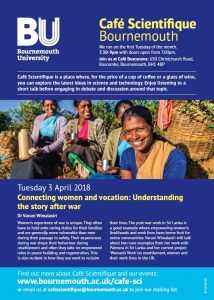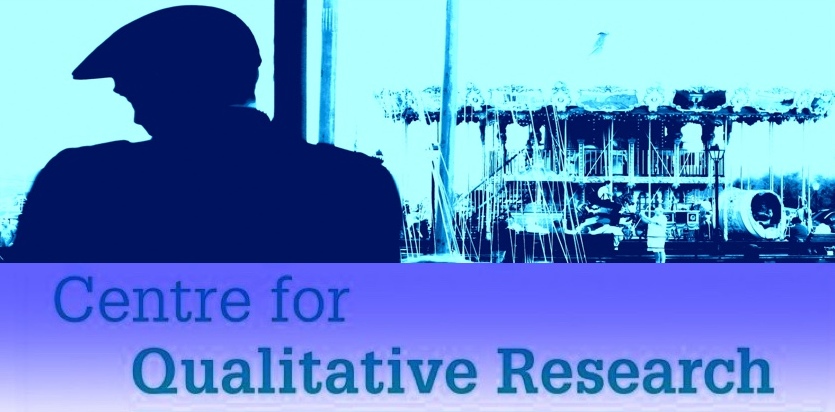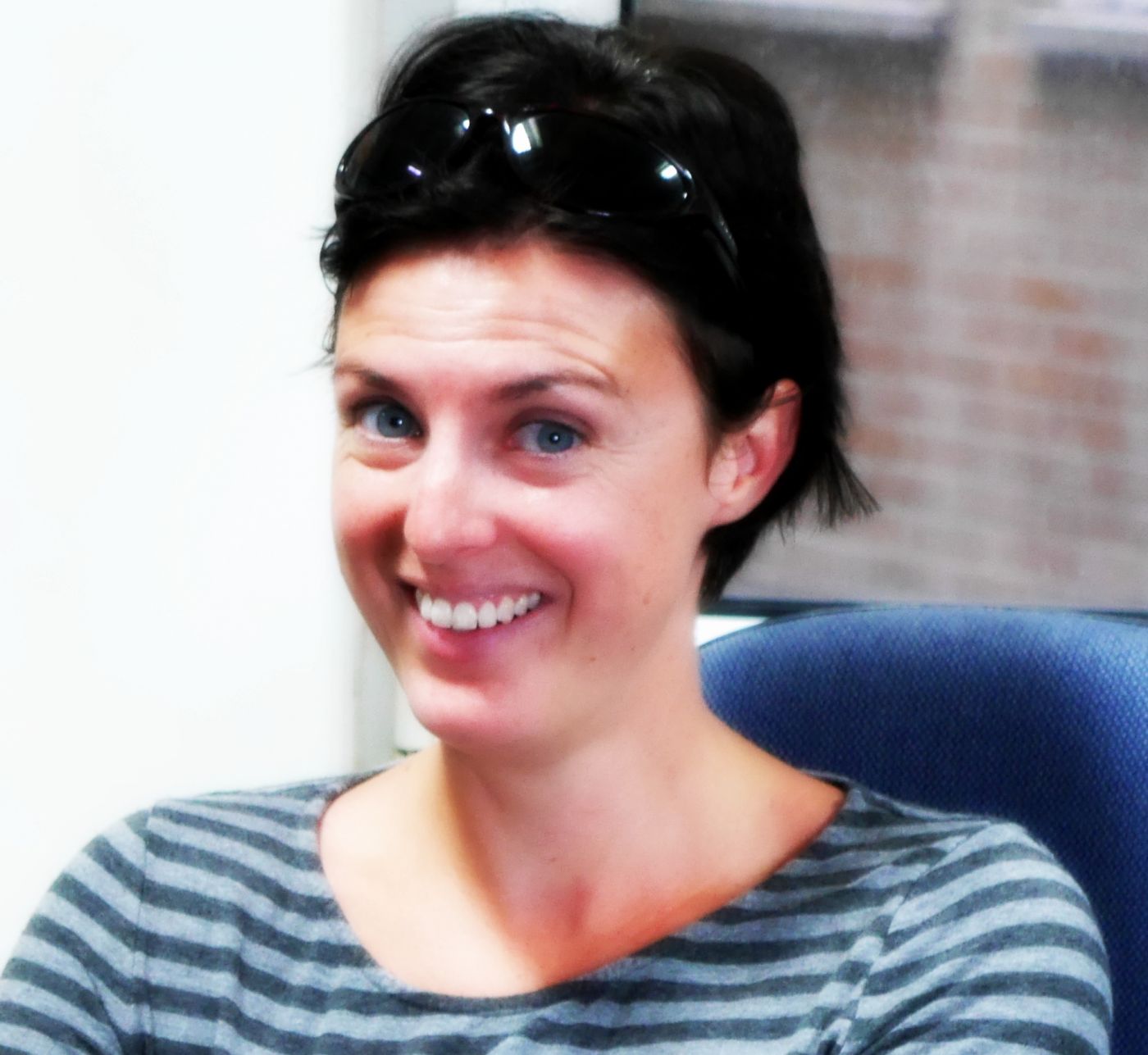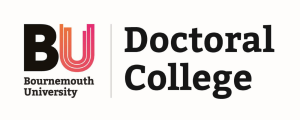While we’re all excited about Sam Gyimah’s visit to BU next week, policy continues to develop in HE. If you haven’t booked your ticket for Sam’s audience yet, please do. Here’s your weekly summary.
Universities Minister visiting BU!
On Thursday 15 March Sam Gyimah MP, Minister of State for Universities, Science, Research and Innovation will visit BU. During the evening he will host An Audience with Sam Gyimah MP. This is a rare opportunity for students and staff to quiz Sam through an interactive question and answer event. Sam will take questions from the audience on HE matters and wider political areas that are of interest to students. He will then invite the audience to discuss and engage with him on topics he will pose. There will be food and refreshments served after the event to enable networking and discussions to continue.
We are pleased to invite staff members to book onto this event – click here to book your place.
Doors open for the event at 17:30, the event will commence at 17:45 and finish for refreshments at 19:30. Colleagues and students must book a ticket to access the event and bring their ticket with them. Please circulate the details of this event to your colleagues and the students you interact with – all BU staff and students welcome! Please also encourage students to attend – Sam really wants to hear from and engage with students – you will have seen he has described himself as the “Minister for Students”, so this is a chance to inform his thinking.
Earlier this week Sam gave an interview to The Student Room, it’s a lengthy 12 minutes, but very interesting to hear Sam’s responses to the student posed questions on a good range of topics. Last week Sam spoke at the Office for Students’ inaugural conference. The contents of his speech come under fire from Andrew McRae (Exeter) in Where’s the minister’s vision focused? The article implies the Minister is looking at the obvious rather than getting to grips with complex HE issues. Come and find out for yourself when Sam comes to BU.
Sam was also criticised in the news this week because he declined to attend the Commons Science and Technology Committee research integrity inquiry. He did subsequently attend. Colleagues interested in the research integrity inquiry can read the proceedings here or watch the session on Parliament TV here.
Non-continuation rates
HESA released non-continuation performance indicator data this week. There are yearly fluctuations in the data, and in general there is a downtrend trend across the years. However, non-continuation has been increasing since 2012-13 and the most recent data published shows a further slight rise in the rates for young, full time first degree students. Part time mature students also have higher non-continuation rates than the part timers aged under 30.
View the HESA tables here.
WP student non-continuation rates dropped slightly. OFFA welcomed this but urged caution as it’s only a slight change (8.8% in 2014/15 to 8.6% for 2015/16). Press interest has mainly focussed on the Scottish Universities and their slightly lower drop out average (BBC, Times). Wales and Northern Ireland continue to perform better than Scotland and England.
HESA also released HE income and expenditure (16/17) details this week. In England tuition fees accounted for 52.2% of the sector’s total income. Across the whole of the UK 54.7% (£18.9 billion) was spent on staff costs. Read more in Research Professional.
International Women’s Day
Wonkhe interview four leading HE women. Hear from: Clare Marchant, Valerie Amos, Maddalaine Ansell, and Alison Johns. Jess Moody of the ECU blogs in a personal capacity encouraging us to Look again at International Women’s Day. And Shân Wareing (LSBU) reflects on the moment she became a feminist and what it means for the proportion of women in senior HE roles today.
U-Multirank announced a new ‘gender balance’ indicator on International Women’s Day. It notes that imbalances can be seen in the ratio of women to men studying in Europe across nine subjects. This gender gap widens as students move from bachelor and master studies to PhD. In all nine study subjects, women dominate at the bachelor/ master level at 60-80% (varies across the nine subjects) but at PhD level female representation is 39-63%. At PhD females within the fields of nursing, political science and social work all fall below 50%. In commitment to International Women’s Day U-Multirank pledged to press for women’s progress in HE by analysing the gender balance across all subject areas. They state:
“the new indicator on ‘gender balance’ in higher education will be a ranked indicator. It will measure the share of women studying in higher education across various study subjects, levels as well as the gender make-up of academic staff. It aims to give an insight into the university’s overall gender balance.”
National Apprenticeship Week
We’re all familiar with the Government’s stance on vocational alternatives to HE study, degree apprenticeships and shifting thinking away from a HE ‘default’. This week was national apprenticeship week and a plethora of case studies and articles have reinforced the Government’s messaging.
HEFCE have blogged Why degree apprenticeships are vital to the local economy
Anne Milton, the Skills Minister, speaks passionately of apprenticeships as a real alternative for students of all abilities.
Disappointingly the case studies tend to focus on FE level training. Adam Evenson, law graduate, talks of his apprenticeship with Gordon Marsden (shadow minister for apprenticeships) while he completes his level 3 in business administration. And Jack Brittain talks of his engineering apprenticeship.
Clamp down on Alternative Providers
The Public Accounts Committee published Alternative Higher Education Providers calling for improvements in the regulation of alternative providers. This is set within the regulatory context of the OfS removing the ‘Basic’ category from the HE register. Here are the headlines and recommendations:
- The Office for Students must prioritise action on malpractice and honour their commitment to protect students’ interests.
- There are still too many students dropping out of their courses.
Recommendation: The Office for Students should set out what more, beyond the existing approach to imposing sanctions, it will do to ensure that non-continuation rates reduce further year on year, and confirm by when it expects to reduce non-continuation rates for alternative providers to the same level as for the rest of the HE sector.
- How, in practice, will the OfS protect and promote students’ interests at the centre of its regulatory system?
Recommendation: As the OfS develops, we will be looking to see it demonstrate that protecting student interests is indeed central to its approach, effective representation for students on the Board, mechanisms for consulting students, and raising standards for students across the whole HE sector, irrespective of whether they study at traditional or alternative HE institutions. The OfS should set out a clear strategy, with timescales, on how it will promote student interests.
- The Department isn’t producing sufficiently timely data to allow robust oversight of providers. It has also failed to recover student loan payments it made to ineligible students.
Recommendation: By September 2018, the Department, the SLC and the OfS should develop a more ambitious plan for what data they will collect to monitor provider performance and to avoid further ineligible payments. This plan should set out how they will collect data including the development of better data systems akin to those used in other parts of government and in the private sector.
- The Department doesn’t have sufficiently effective systems in place to identify promptly where it needs to intervene to address fraud or emerging issues.
Recommendation: By the end of 2018, the Department and the OfS should develop a more systematic and proactive approach to identifying problems emerging in the sector so that it can take prompt action to deal with failing providers and protect the interests of learners.
- By the end of 2018, the Department and the OfS should develop a more systematic and proactive approach to identifying problems emerging in the sector so that it can take prompt action to deal with failing providers and protect the interests of learners.
Recommendation: By the end of 2018, the Department and the OfS should develop a more systematic and proactive approach to identifying problems emerging in the sector so that it can take prompt action to deal with failing providers and protect the interests of learners.
- The alternative provider sector still presents too many opportunities to fraudsters.
Recommendation: As one of its first tasks, the OfS should set out how it will investigate and clamp down on recruitment malpractice, faking attendance records and coursework, and opaque arrangements for validating degrees, and produce a robust plan for remedying these problems across the sector.
Parliamentary Questions
The pension strikes continue to be major news this week. Sam Gyimah responds to a strike related parliamentary question and a wide selection of other topics.
Strikes
Q – Jo Swinson (Lib Dem): To ask the Secretary of State for Education, what assessment he has made of the effect on students of the loss of teaching hours as a result of the university lecturers’ pension strike.
A – Sam Gyimah (Con):
- Universities are autonomous institutions and it is for them to assess the impact of the strike action on their provision. While the Department for Education has not made its own assessment, we remain concerned about any impact of the strikes on students and expect universities to put in place measures to maintain the quality of education that students should receive.
- We note that the Universities and Colleges Employers Association, which represents UK higher education organisations as employers, polled the 56 universities, which were the focus of strikes on 22 and 23 February 2018. Results of this polling indicate that the overall impact in four out of five institutions was between ‘none’ and ‘low-medium’.
School leavers progressing to HE
Q – Douglas Chapman (SNP): To ask the Secretary of State for Education, what proportion of school leavers have participated in higher education in England in each year since 2010.
A – Sam Gyimah (Con):
- The department has two principal sources showing participation in education and other activities by young people as they transition between ages 16 and 19. Destination measures show the activities of young people in the year following their completion of key stage 4 (GCSEs) and key stage 5 (A-levels and other Level 3). The 16-18 Participation Statistical First Release (SFR) shows snapshot estimates of participation in different activities at each of academic ages 16, 17 and 18.
- Destination measures show the percentage of students with sustained participation in education or employment over six months following the end of their phase of study. Information on pupil destinations is published annually on GOV.UK at https://www.gov.uk/government/collections/statistics-destinations.
- The table in attachment one shows the proportion of students in sustained study at higher education institutions since 2010 following their completion of 16-18 study (state-funded mainstream schools and colleges in England). See table NA10 in the ‘Key stage 5 –national tables: SFR56/2017’ document for full breakdowns: https://www.gov.uk/government/uploads/system/uploads/attachment_data/file/652777/SFR56_2017_KS5_National_Tables_1516.ods.
- Estimates of national participation rates in England at academic ages 16, 17 and 18 are provided in the department’s SFR ‘Participation in education, training and employment: 2016’ published here https://www.gov.uk/government/statistics/participation-in-education-training-and-employment-2016. These differ from the destination measures estimates provided, because they are not linked to previous study and provide estimates for the whole population, and they are based on a snapshot of activities at the end of the calendar year (rather than over a six-month period).
- The table in attachment two shows estimates of the proportion of young people participating in full-time education, by institution type, at academic age 16 and 18, at the end of 2016.
- Proportion of students in sustained study at HEIs (Word Document, 13.88 KB)
- Participation in full-time education by age (Word Document, 12.8 KB)
Video game art & animation
Q – Justin Tomlinson: To ask the Secretary of State for Education, what estimate his Department has made of the number of students who have graduated with a degree in video game art and animation in each of the last three years.
A – Sam Gyimah:
- The Higher Education Statistics Agency (HESA) collects and publishes statistics on enrolments and qualifications obtained at UK Higher Education Institutions. The Latest statistics refer to the academic year 2016/17.
- The table attached shows the numbers of first degree qualifiers in computer game design and graphics subjects.
Full-person-equivalent1 First degree qualifiers in computer game design and graphics – Academic years 2014/15 to 2016/17
| Academic Year |
Number of qualifiers in computer game design2 |
Number of qualifiers in computer games graphics2 |
Total qualifiers in computer game design and graphics |
| 2014/15 |
240 |
45 |
285 |
| 2015/16 |
430 |
60 |
485 |
| 2016/17 |
550 |
95 |
640 |
- Counts are on the basis of full-person-equivalents. Where a student is studying more than one subject, they are apportioned between the subjects that make up their course.
- We have included qualifiers in Computer game design (I620) and Computer games graphics (I630) as the most appropriate JACS codes for “video game art and animation”. More information on JACS codes can be found at the following link: https://www.hesa.ac.uk/support/documentation/jacs.
Mental Illness
Q – Richard Burden (Lab): To ask the Secretary of State for Education, what estimate he has made of the number of people who left their undergraduate degree course for mental health reasons in each of the last five years.
A – Sam Gyimah (Con):
- Mental health is a priority for this government. The Children and Young People’s Mental Health green paper outlines the government’s plans to set up a new national strategic partnership focused on improving the mental health of 16-25 year olds, encouraging more coordinated action, innovation and robust evaluation of mental health services. One recommendation in the green paper is for the partnership to provide a systematic strategy to improve what we know about student mental health by encouraging improvements in data linkage and analytics. Data is available from the Higher Education Statistical Agency on the number of higher education students who leave their course early for health reasons, but the data does not make it possible to distinguish mental health reasons specifically.
- The department is working closely with Universities UK on the programme of work on Mental Health in Higher Education, which has included work with the Institute for Public Policy Research to strengthen the evidence-base on mental health in higher education.
Brexit and Overseas (EU) Students
Q – Daniel Zeichner (Labour): To ask the Secretary of State for Education:
(Q1) whether the Government has undertaken an assessment of the potential effect of the UK leaving the EU on the ability of universities to attract EU students at (a) undergraduate and (b) postgraduate levels.
AND (Q2) whether EU students starting courses in English higher education institutions in 2019-20 and 2020-21 will be eligible for (a) home fee status and (b) student loans and grants under the current eligibility criteria.
A1 – Sam Gyimah (Conservative):
- The government is undertaking a comprehensive and ongoing programme of analytical work across a range of scenarios for EU exit. As part of this, we are engaging closely with the higher education (HE) sector, including through my High Level Stakeholder Working Group on EU Exit, Universities, Research and Innovation.
- The UK is a highly attractive destination for EU and international students, second only to the USA in the numbers we attract, and we recognise that student mobility is a key issue for our world-class HE sector. The government has commissioned the Migration Advisory Committee (MAC) to provide an objective assessment of the impact of EU and international students by September 2018. This provides an important opportunity for the sector to share evidence, and the MAC’s independent advice will help inform decisions on the future migration system.
- To help provide certainty, we have also announced that EU students starting courses in England in the academic year 2018/19 or before will continue to be eligible for student loans and home fee status for the duration of their course, and will remain eligible for Research Council PhD studentships on the current basis. These students will also have a right to remain in the UK to complete their course.
A2 – Sam Gyimah:
- The government has taken action to provide greater certainty about student funding for EU students. We have confirmed that current EU students and those starting courses at an English university or further education institution in the 2017/18 and 2018/19 academic years will continue to be eligible for student loans and home fee status for the duration of their course.
- Future arrangements for EU students starting courses after 2018/19, and who are not settled in the UK or on a pathway to settled status by the specified date, will need to be considered as part of wider discussions about the UK’s relationship with the EU.
- Applications for courses starting in 2019/20 do not open until September 2018, and we are working to ensure students applying have information well in advance of this date.
Sharia Compliant Student Finance
Q – Lyn Brown: To ask the Secretary of State for Education, whether a sharia-compliant alternative student finance system will be available for people beginning university courses in September 2018.
A – Sam Gyimah:
- We understand the concern that some prospective students may be deterred from pursuing higher education because they are unable to use loans that bear interest.
- We are therefore continuing to work on an alternative student finance product that would avoid using interest. We have appointed specialist advisors from the Islamic Finance Council to help design a new system that can make maintenance and tuition fee payments and collect repayment contributions in a way that is both equivalent to the current system and compliant with the requirements of Islamic finance.
- This a complex area requiring careful consideration of a range of technical issues, including the nature of the accounting for the new arrangements, the degree of legal separation required for any fund, the treatment of cashflows, the nature of the commitments that a student will make under the new system, and the method for establishing equivalence of outcome, amongst others.
- This work is being undertaken at pace and we will be in a good place to provide an update in the summer. I will set out our planned timetable at that time. I note that it typically takes two years to introduce a new student finance product, which would rule out launching for academic year 2018/19.
Post-study Work Visas
Q – Stuart C. McDonald: To ask the Secretary of State for the Home Department, what assessment her Department has made of the effect of ending the Tier 1 (Post-Study Work) visa on the ability of businesses to recruit people with the necessary skills.
A – Caroline Nokes:
- The Tier 1 (Post Study Work) route was closed in April 2012.
- A published assessment of Tier 1 migrants in October 2010 found that three in five users of this visa were in unskilled work and we also saw a large number of fraudulent applications. This undermined our work routes and damaged the reputation of our education system. We have no current plans to re-introduce a post study work route that does not lead to skilled work.
- We already have a comprehensive offer for graduates seeking to undertake skilled work in the UK after their studies. Students studying courses lasting 12 months or more are given 4 months leave at the end of their course to look for a job and those with an offer of a graduate-level job, paying an appropriate salary, may take up sponsored employment through Tier 2. Many of the requirements for a Tier 2 skilled work visa are relaxed or waived for those applying to switch from the Tier 4 student route within the UK. This includes exempting switching students from the Tier 2 cap of 20,700 and allowing employers who wish to recruit them to not carry out the Resident Labour Market Test.
Widening Participation & Student Success
The All Party Parliamentary University Group met to discuss fair access this week. Chris Millward, the incoming Director for Fair Access and Participation at the Office for Students stated success in widening access to higher education would depend on how universities and colleges work with schools and employers, and how they support students “through all stages of the lifecycle”.
Scotland continues to be vocal on WP matters. Scottish Higher Education Minister Shirley-Anne Somerville launched a major speech on Tuesday expressing her support for contextualised admissions and bridging programmes and calling for systemic change:
- “..for anyone in the sector who may be thinking that there is a short cut to achieving our targets through a drop in demand elsewhere then let me be very clear.
- There is no short cut. .No silver bullet. Widening Access will require systemic change.”
Other news
STEM: The Guardian analyses the STEM gender gap. The article cites data to negate the biological and social/cultural answers instead looking at the influence of ‘social belongingness’ and childhood gender stereotypes.
EU Research News: Research Professional describes this week’s EU research news here.
Spring Statement: If you’re interested in the Chancellor’s Spring Statement that will be delivered on 13 March political monitors, Dods, have prepared an overview of what to expect. From their overview:
“There will be no red box, no official document, no spending increases, no tax changes,” a spokesman for the Treasury told the Financial Times last month. “The Chancellor will publish updated economic forecasts; we expect the speech to last between 15-20 minutes.” … Ministers have repeatedly stated that the Statement is not a “fiscal event” so few are expecting many policy announcements, however the Chancellor should set out some thinking about longer term economic priorities.
The statement is expected to focus predominantly on the economic outlook for the country, and the review panel on Land Use (chaired by local MP Sir Oliver Letwin) will report before the economic outlook is delivered. Dods also note:
Public Sector Leadership Academy – The taskforce is due to provide an initial update with a full report on their remit and responsibilities due for the Autumn Budget 2018. The Cabinet Office have indicated a chair has been selected and will be formally announced shortly.
Grade inflation: The Conversation have a clear and balanced article setting out the reasons behind increased number of good degrees, explaining the Government criticism and considering the way forward.
Subscribe!
To subscribe to the weekly policy update simply email policy@bournemouth.ac.uk
JANE FORSTER | SARAH CARTER
Policy Advisor Policy & Public Affairs Officer
Follow: @PolicyBU on Twitter | policy@bournemouth.ac.uk

 ESRC will shortly be inviting applications of between £1 million and £2.5 million (at 100% fEC) to take forward an exciting research agenda in the area of
ESRC will shortly be inviting applications of between £1 million and £2.5 million (at 100% fEC) to take forward an exciting research agenda in the area of  NERC introduced
NERC introduced  As part of the
As part of the 
 The Centre for Qualitative Research congratulates one of its postgrad Affiliates, Louise Oliver, who has won third prize for her oral presentation
The Centre for Qualitative Research congratulates one of its postgrad Affiliates, Louise Oliver, who has won third prize for her oral presentation

 “As a nutritionist, I became aware of the fact that there was growing evidence that under-nutrition, commonly known as malnutrition, is a prevalent problem for older people. The figures show that up to about 45 percent of older people living in residential care are at
“As a nutritionist, I became aware of the fact that there was growing evidence that under-nutrition, commonly known as malnutrition, is a prevalent problem for older people. The figures show that up to about 45 percent of older people living in residential care are at 













 Expand Your Impact: Collaboration and Networking Workshops for Researchers
Expand Your Impact: Collaboration and Networking Workshops for Researchers Visiting Prof. Sujan Marahatta presenting at BU
Visiting Prof. Sujan Marahatta presenting at BU 3C Event: Research Culture, Community & Can you Guess Who? Thursday 26 March 1-2pm
3C Event: Research Culture, Community & Can you Guess Who? Thursday 26 March 1-2pm UKCGE Recognised Research Supervision Programme: Deadline Approaching
UKCGE Recognised Research Supervision Programme: Deadline Approaching ECR Funding Open Call: Research Culture & Community Grant – Apply now
ECR Funding Open Call: Research Culture & Community Grant – Apply now ECR Funding Open Call: Research Culture & Community Grant – Application Deadline Friday 12 December
ECR Funding Open Call: Research Culture & Community Grant – Application Deadline Friday 12 December MSCA Postdoctoral Fellowships 2025 Call
MSCA Postdoctoral Fellowships 2025 Call ERC Advanced Grant 2025 Webinar
ERC Advanced Grant 2025 Webinar Update on UKRO services
Update on UKRO services European research project exploring use of ‘virtual twins’ to better manage metabolic associated fatty liver disease
European research project exploring use of ‘virtual twins’ to better manage metabolic associated fatty liver disease